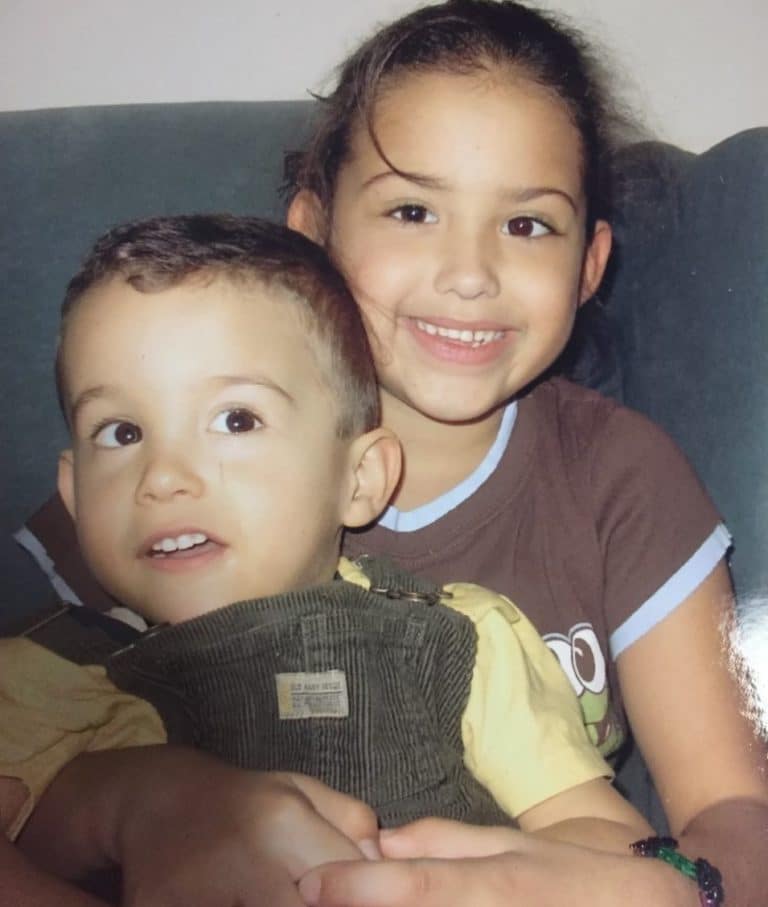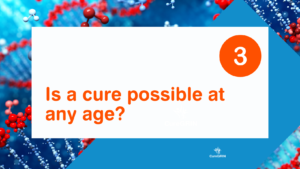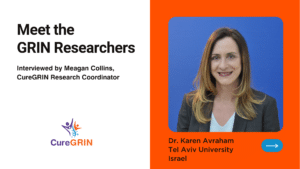GRIN Sibling: Sierra
Share This Post

My experience as a GRIN Disorder Sibling
Written by Sierra Wasielewski
As a child, it’s tough to recognize how different your life is from anyone else’s. I assumed my life was average until my brother became a part of it. I thought Austin was just like any other little brother. My five-year-old self didn’t know that babies are supposed to be able to crawl, talk, and begin to learn within their first year or two. For years I clung to the idea that Austin was normal. I spent countless hours fantasizing about playing games with him and seeing him in school.
The notion that he was different from everyone else’s siblings never crossed my mind.
I didn’t know that seizures and monthly trips to various doctors weren’t a normal part of having a brother.
New York’s best doctors couldn’t even figure out what made Austin so different. Although my family sought advice from doctors in various fields and hospitals, none of them could help us. My brother was tested for dozens of epilepsy related diseases, but with each test came another negative result. I was twelve before we had answers.
A team of doctors, led by Dr. William Gahl at the National Institute of Health, discovered a mutation in my brother’s genes called GRN-2A.
Austin became the first person in the United States to be diagnosed with this disorder. The mutation causes receptors in his brain to stay open rather than open and close, which causes seizures and frequent hyperactivity.
Austin’s condition didn’t allow him to develop as an average child would.
In a sense, I didn’t develop as any normal child would either. Having a disabled sibling is one of the most difficult things I’ve had to deal with. I was forced to mature at an early age, forced to know how to take care of my brother as well as myself, and forced to stay calm no matter the situation. When Austin had his first seizure, I was just six years old. I was the one to call 9-1-1 when the adults panicked. By the time I was eight, I knew how to handle his seizures. In fact, I was often calmer than the adults around me. When I began to learn about science, I was the one to simplify the complex medical terminology for my parents.
Having a brother as special as Austin didn’t come without its consequences. I constantly felt like I was living in his shadow. Every time I was at a family event or with my parents’ friends, the first question was “How is Austin?” I felt overlooked, forgotten and unimportant. It wasn’t uncommon for me to feel like a stranger in my own home. Eventually I found solace in music. Music became my best friend. Playing the guitar gave me hope and a chance to be myself instead of Austin’s sister. I also submerged myself in the world of science. One of my favorite things to do became reading the medical journal entries about my brother. I couldn’t get enough of the knowledge that came with handling a situation like this one.
Thanks to Austin, I discovered that science is my passion.
Nothing can compare to working on (and hopefully solving) the complex puzzles set forth by the natural workings of the world. I’ve even combined my interests in science and music to organize fundraisers for our organization, Austin’s Purpose. We currently have a team of the world’s leading neuroscientists building a replica of my brother’s brain to try to find a more effective treatment for children with epilepsy. Even though living with Austin is not something anyone else can begin to imagine, it has become my reality. I’ve learned so much from him, and there is no doubt that I would be a completely different person without him. Medical journals may mention me as the “unaffected sister,” but, little do they know, Austin has transformed who I am.


